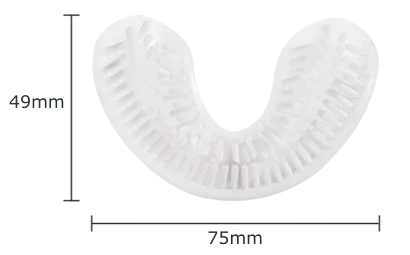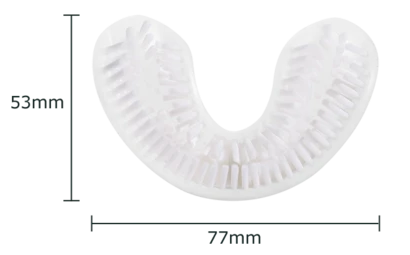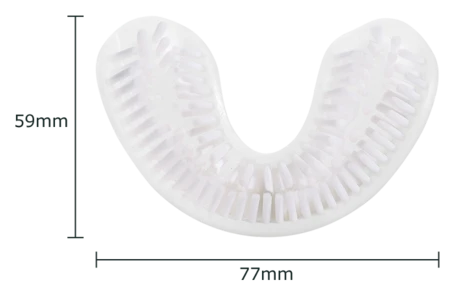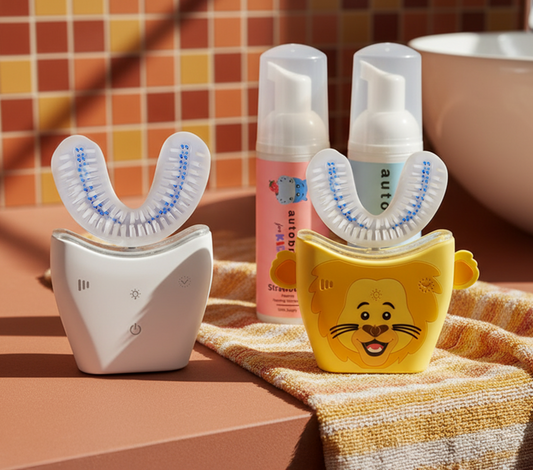
Teeth Grinding in Children: Causes, Effects, and Solutions
When it comes to our children's health, we often focus on nutrition, physical activity, and mental well-being, forgetting one crucial aspect: oral health. One common oral issue that often goes unnoticed is teeth grinding in children, also known as bruxism.
Bruxism is a common condition, affecting 20-30% of children. It typically occurs during sleep, which makes it hard for parents to detect. If your child wakes up with complaints of a sore jaw, facial pain, or headaches, teeth grinding might be the culprit.
What Does it Mean When a Child Grinds Their Teeth?
In many cases, children grind their teeth due to stress or anxiety. It can also be a response to teething or an uncomfortable alignment of teeth. Surprisingly, a child might grind their teeth due to specific illnesses, allergies, or even certain types of medication. It's important to keep in mind that occasional teeth grinding doesn't always denote a serious problem. However, regular, persistent grinding can lead to significant oral health issues.
The Consequences of Persistent Teeth Grinding
If not addressed promptly, teeth grinding can cause tooth wear and fractures, loss of enamel, and increased sensitivity. It can also lead to jaw disorders, facial pain, and difficulty chewing. Additionally, it can disrupt sleep patterns, causing daytime sleepiness and affecting your child's performance at school.
How Do I Stop My Child from Grinding Her Teeth at Night?
Stopping a child from grinding their teeth at night might not be as straightforward as one would wish. Here are a few steps you can take:
- Addressing Stress and Anxiety: If the grinding is due to stress or anxiety, it's important to help your child manage these feelings. This could involve regular exercise, relaxation techniques, or talking to a child psychologist.
- Dental Check-ups: Regular dental check-ups are crucial for early detection of teeth grinding. Your child's dentist might recommend a special night guard to protect the teeth during sleep.
- Good Sleep Hygiene: Establishing a good sleep routine can help. Ensure your child goes to bed and wakes up at the same time each day, avoids electronic devices before bed, and sleeps in a dark, quiet environment.
- Proper Nutrition: Certain foods and drinks, especially those containing caffeine, can increase the likelihood of teeth grinding. It's recommended to limit these in your child's diet.
While these strategies can help, it's essential to consult with your child's dentist or pediatrician to ensure that the cause of teeth grinding is properly identified and treated.
Best Practices for Children's Oral Health
Keeping your child's teeth healthy goes beyond stopping teeth grinding. Some best practices for children's oral health include teaching your child to brush their teeth twice daily, flossing regularly, and maintaining regular dental check-ups. Also, limit sugary foods and drinks in their diet, and encourage drinking plenty of water to keep their mouth clean and hydrated.
A great tool that we recommend for maintaining your child's oral health is AutoBrush. AutoBrush is designed to make brushing fun and efficient for children, with automatic, 360-degree cleaning in just 30 seconds. It's an excellent solution to encourage your children to take charge of their oral health.
In conclusion, teeth grinding in children is a common but potentially harmful habit. By understanding its causes and effects and following the steps outlined above, you can help your child overcome teeth grinding. Remember, regular dental check-ups and maintaining a healthy oral routine can make all the difference in your child's overall well-being.
















